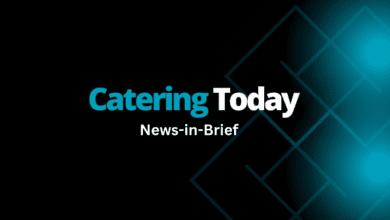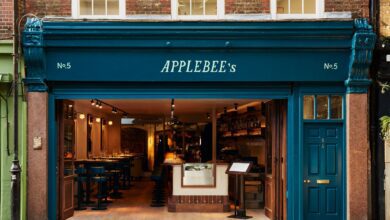How will the Scottish budget affect businesses?
Catering Today explains how the Scottish budget differs from the UK-wide budget and how this will affect hospitality businesses north of the border

On 4 December 2024 first minister John Swinney announced the budget for Scotland for the period of 2025-2026. It followed the announcement of the budget for the rest of the UK by chancellor Rachel Reeves in October. As part of devolution powers introduced under the Tony Blair administration, the Scottish Parliament has a number of powers over tax and laws that can set it apart from the rest of the UK.
For example, the Scottish Parliament has the power to set tax bands (with the exception of the personal allowance) and the rates for each band for the non-savings and non-dividend income of Scottish taxpayers. However, HMRC remains responsible for the collection and management of income tax in Scotland. For hospitality specifically, Holyrood has control over business rates.
What was in the Westminster budget?
In short, the budget announced by Rachel Reeves in October raised employers’ National Insurance contributions by 1.2%, from 13.8% to 15%. In addition, the threshold at which businesses start paying National Insurance on a worker’s earnings will be lowered from £9,100 to £5,000, a measure that will raise £25bn a year.
She also promised that the current 75% discount to business rates for the retail, hospitality and leisure industries in 2025-26, due to expire in April 2025, will be replaced by a discount of 40%, up to a maximum discount of £110,000.
What was in the Scottish budget?
The main differences for hospitality businesses in the Scottish budget came in the form of business rates. The budget will offer 40% business rates relief for hospitality properties liable for the Basic Property Rate, a rateable value up to and including £51,000, capped at £110,000 per business, similar to England and Wales.
However, where the budget begins to differ is for businesses with a rateable value of between £51,001 and £100,000 and above. Hospitality businesses in these brackets, Intermediate and Higher respectively, will not be eligible for this relief.
Away from hospitality, this relief has not been passed onto retail and leisure properties, with the exception of grassroots music venues with a capacity of up to 1,500 and with a rateable value up to and including £51,000.
What has the reaction been?
Overall, the Scottish hospitality sector has not reacted well, with UKHospitality Scotland stating that the budget will “leave thousands of venues worse off”. By the trade body’s calculations, over 2,500 businesses in Scotland will not be able to access business rates relief that is available for similar businesses south of the border. Alongside this, the Institute of Fiscal Studies stated that the SNP’s tax strategy provides “little sense of direction on tax policy beyond income tax”.
UKH Scotland believes that a typical local pub, which just misses out on relief, will pay £12,000 more in rates compared to an equivalent business in England. For a town centre restaurant, it will be £17,000 more while a rural hotel will pay £25,000 more.
As it currently stands the budget has not been passed to become an Act of the Scottish Parliament. The SNP currently stands as a minority government, without coalition support following the collapse of its deal with the Scottish Greens last year. This means that there could be difficulty getting it passed. The first minister warned that blocking the budget risks “feeding the forces of anti-politics and populism”.















